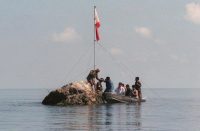
The Real China Hands
For four years, as an increasingly belligerent China breathed down their necks, the United States’ allies in Asia quietly endured a torrent of abuse from President Donald Trump. Under President Joe Biden, they again have a winning hand in Washington. By the time he took office, Biden, a leading optimist about cooperation with China when he was vice president, had transformed into a hardened skeptic. He has promoted key alliance builders to the top Asia posts at the National Security Council, the State Department, and the Pentagon and ensured that his first in-person summit was with Yoshihide Suga, then Japan’s prime minister.… Seguir leyendo »

